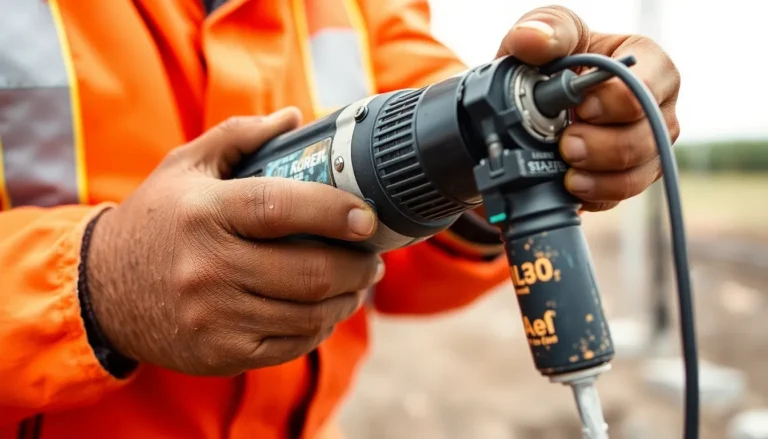Defective Work Equipment Claims
100% No Win No Fee
Advice on when defective work equipment claims are possible and how our solicitors can help.
Excellent Reviews On

Defective Work Equipment Claims
100% No Win No Fee
Advice on when defective work equipment claims may be possible and how our solicitors can help.
Excellent Reviews On
As featured in:




Workplaces should provide the right equipment to keep us safe. Yet, when equipment fails, whether due to poor maintenance, faulty design, or employer oversight, serious accidents can follow. Therefore, we’ve produced this guide to explain everything you need to know about making a defective work equipment claim, including when you might be able to claim, what evidence helps, and how the process works from start to finish.
With decades of experience, our firm knows exactly how to support those harmed by defective work equipment. We help our clients secure the compensation they deserve, aiming to make a complex process as straightforward as possible.
If you think you have a claim or just want to understand your rights, read on. For tailored advice, you can also contact our team online or call 0333 091 8598 for a no-obligation conversation.

What Is A Defective Work Equipment Compensation Claim?
A defective work equipment compensation claim arises when an employee is injured or becomes ill due to faulty or unsafe equipment at work. Laws like the Provision and Use of Workplace Equipment Regulations 1998 (PUWER) place a clear duty of care on employers. It means that they must provide equipment that is fit for purpose, maintained regularly, and safe to use. If they fail in those responsibilities and someone gets hurt, a compensation claim may be possible.
This type of claim recognises not just physical injuries, but also psychological trauma, loss of earnings, and the ongoing impact on your daily life. We handle cases where equipment failure has led to everything from finger amputations to life-changing harm.
Also, we provide a free consultation so that you can get a better understanding of your options. During your call, we can assess your claim, answer any questions and explain what you might do next. Why not call our team today to see if you can start a defective work equipment claim?
Why use us?
Free Consultation
We offer a free consultation to anyone looking to make a claim
No win, no fee
Claim experts
We use solicitors who have handled thousands of claims
When Can I Make A Defective Work Equipment Claim
To have grounds for a defective work equipment claim, three key criteria usually apply:
Duty of care: At the time of your accident, your employer had a legal obligation to provide safe equipment.
Breach: That duty was breached, through lack of maintenance, poor training, allowing unsafe equipment to be used or similar forms of negligence.
Causation: You suffered an injury or illness directly because of the defective equipment.
It doesn’t matter if you’re full-time, part-time, on an agency contract or even self-employed working for another business, if you used equipment provided by the employer and were hurt as a result of its defect, you may be eligible.
If you’re unsure whether you have grounds to proceed with a claim, please feel free to call. Our team is here to help and ready to answer your questions.
Common Defective Work Equipment Claims
Defective equipment can cause a surprisingly wide range of accidents, and many are the result of simple employer negligence. Some frequent examples of eligible claims include:
Contact with moving parts: Lack of safety guards or emergency cutouts on machines can cause amputations or crush injuries.
Electric shocks: Frayed cables or poorly insulated equipment can expose workers to electrocution.
Falls from height: Faulty ladders, scaffolding, or personal protective equipment can lead to serious falls.
Burns or scalds: Inadequately shielded ovens, heaters, or chemical containers can result in painful injuries.
Manual handling injuries: Defective hoists or lifting aids often cause back or muscle injuries.
All too often, these incidents could have been avoided with proper maintenance and safe practices. If you believe your employer’s negligence led to your injury, an accident at work claim may be possible. If you’d like more information, please call today.
The Defective Work Equipment Claims Process
We’ve managed plenty of workplace injury claims over the years, guiding clients every step of the way. As specialist accident at work solicitors, we approach every claim with a thorough investigation and build the case on strong legal foundations.
If your claim is taken on, here’s how we’ll support you:
Initial case review: We’ll quickly establish if you have a strong claim and explain your chances of success.
Collection of evidence: Our specialists gathers documentation, witness accounts, and medical assessments to support your claim.
Negotiations: We communicate directly with insurers or the employer, so you don’t have to. Our aim is to secure the best settlement without court, though we aren’t afraid to litigate if needed.
Ongoing support: We understand workplace injuries are disruptive. We’ll keep you informed, reduce your stress, and fight for your interests at every turn.
Because every client’s situation is unique, we tailor our approach and offer clear, practical advice throughout. For more information on how your claim might proceed, please don’t hesitate to call.
How Can I Help Make My Claim Stronger?
Collecting evidence to prove what happened is the best way to help your solicitor. The more evidence you can provide, the better your chance of success. Early action makes a huge difference, so it’s wise to collect whatever you can.
Important evidence includes:
Medical records and hospital reports
Photographs of the defective equipment and your injury
Accident book entries at work
Witness statements from colleagues or supervisors
Maintenance logs or servicing records
Relevant policies or training records
We help clients track down and organise this evidence, but starting the process as soon as possible makes it easier to build a compelling case. If you have any evidence to support a defective work equipment claim already, please let us know when you call.
Do Defective Work Equipment Claims Have A Time Limit?
Yes, there’s usually a strict time limit for making a defective work equipment claim: three years from the date of the accident or when you first became aware of your injury. There are some exceptions, however:
If the injured party lacks mental capacity, there is no time limit unless that capacity returns.
For fatal defective work equipment claims, the deceased’s estate and/or dependents have 3 years to claim from the date of death or date of knowledge.
It is advisable to start the claims process as early as possible to avoid missing out on any compensation due. Therefore, why not call our team today?
What Are No Win No Fee Defective Work Equipment Claims?
A No Win No Fee agreement means you don’t pay us any legal fees upfront and, if your case doesn’t succeed, you won’t have to cover our costs at all. This approach removes financial risk and gives everyone, regardless of background, access to justice after a workplace accident.
Key benefits include:
No upfront fees to start your claim.
Nothing to pay if the claim fails.
Our interests are aligned: we work hard for a successful outcome.
Peace of mind throughout the process.
We’ll always explain exactly how this works, including how any success fee is calculated, so there are no surprises. Therefore, please feel free to get in touch with a specialist from our team if you’d like more information.
Try Our Compensation Calculator
Take a look at our compensation calculator to get a broad idea of what an accident at work payout could look like. The figures used in this calculator are taken from the Judicial College Guidelines (JCG), which is a document that provides guideline compensation brackets for different injuries and illnesses.
Compensation Bracket: 0.00
Please note that these are not guaranteed amounts, and that this calculator doesn’t take special damages into account. Contact our team today to learn more about compensation in manual handling injury claims.
Call Today To Start A Claim
If you’ve been hurt by defective work equipment, you don’t need to navigate the process alone. We’re ready to help, no matter how complex your situation might seem.
You can reach us for expert guidance, without obligation, by calling 0333 091 8598 or using our online form.
Our team will listen to your story, assess your options, and act quickly to give you the best possible start to your claim.
FAQs on Claiming For Defective Work Equipment Injuries
How do I know if I have a valid claim for defective work equipment?
To assess the validity of your claim, you need to establish that the equipment was indeed defective, contributed to your injury, and that your employer failed to maintain a safe working environment. Collect evidence such as photographs, witness statements, and maintenance records. Consulting with our legal experts can help to clarify your situation and inform you of your options.
Can I claim compensation if I was injured due to a colleague’s negligence with defective equipment?
Yes, you can potentially claim compensation even if the negligence came from a colleague. Employers have a duty of care to ensure that all equipment is safe for use and properly maintained. If you can demonstrate that your injury resulted from your employer’s failure to provide a safe working environment, including the actions of a colleague using defective equipment, you may have grounds for your claim.
Will I have to go to court to resolve my claim?
While many claims do not reach court and are settled through negotiations, it is essential to be prepared for that possibility. If your employer or their insurance company does not agree on a fair settlement, you may need to file a claim in court. However, our legal professionals often recommend exhausting all alternative dispute resolutions before proceeding to court, as it can be a lengthy and costly process.


